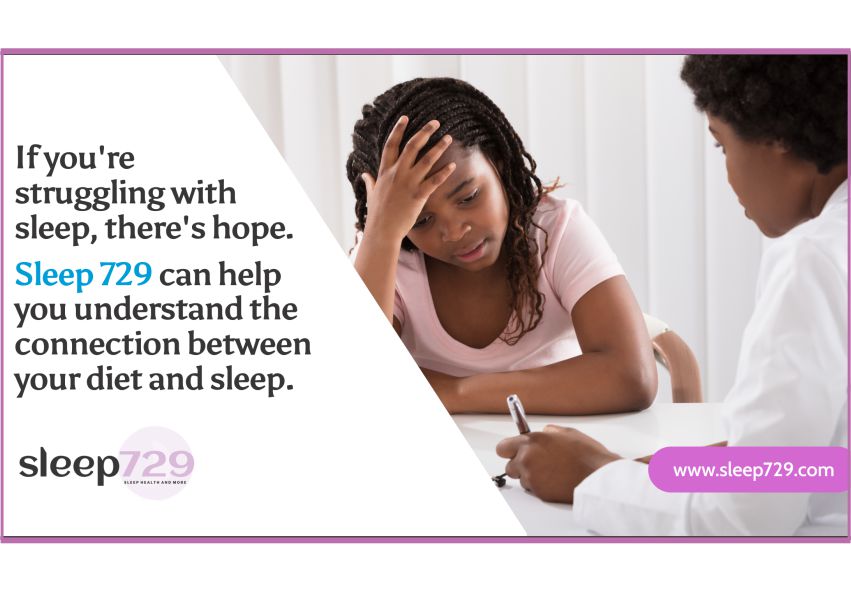
It’s no secret that both nutrition and sleep play fundamental roles in our health, but the complex and important relationships between them are frequently overlooked.
Diet and nutrition can influence the quality of your sleep, and certain foods and drinks can make it easier or harder to get the sleep that you need. At the same time, getting enough sleep is associated with maintaining a healthier body weight and can be beneficial for people who are trying to lose weight.
Recognizing the connections between sleep and nutrition creates opportunities to optimize both to eat smarter, sleep better, and live a healthier life
If you find yourself tossing and turning at night, your diet might be playing a bigger role than you think.
What you eat affects how well you sleep, and how well you sleep affects what you eat. By understanding this connection, you can make changes that lead to smarter eating, better sleep, and a healthier life.
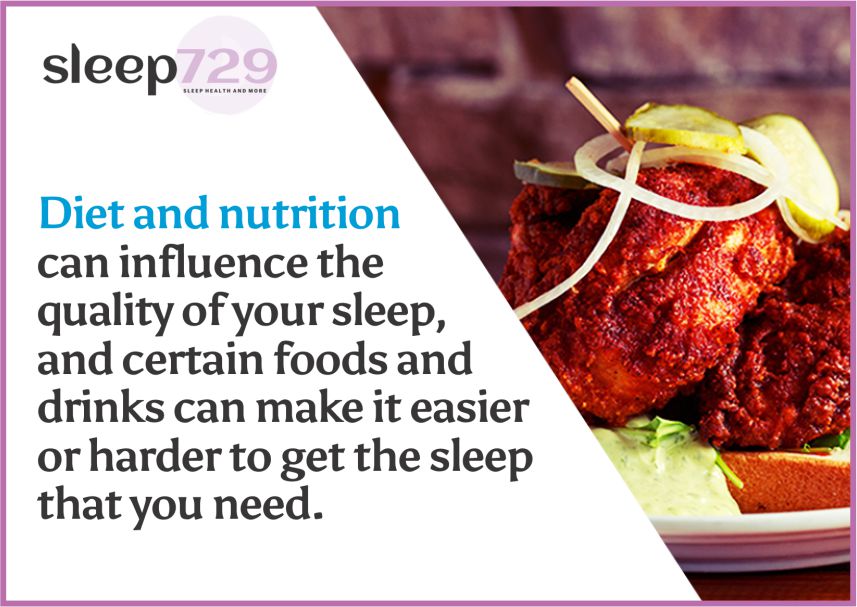
Nutrition is made up of food and other substances that allow the body to have energy and function properly.
Human nutrition is composed of:
1) Macronutrients: Macronutrients include carbohydrates, protein and amino acids, fats, fibre, and water.
2) Vitamins: Vitamins play specific roles in a multitude of bodily processes, and there are 13 essential vitamins.
3) Minerals: Numerous minerals are needed to power different systems of the body. Minerals are classified as either macro minerals or trace minerals depending on how much of them we need.
Proper nutrition requires obtaining a healthy balance of macronutrients and the necessary intake of vitamins and minerals. Most nutrition comes from food, but other sources, like drinks and dietary supplements, are contributors as well.
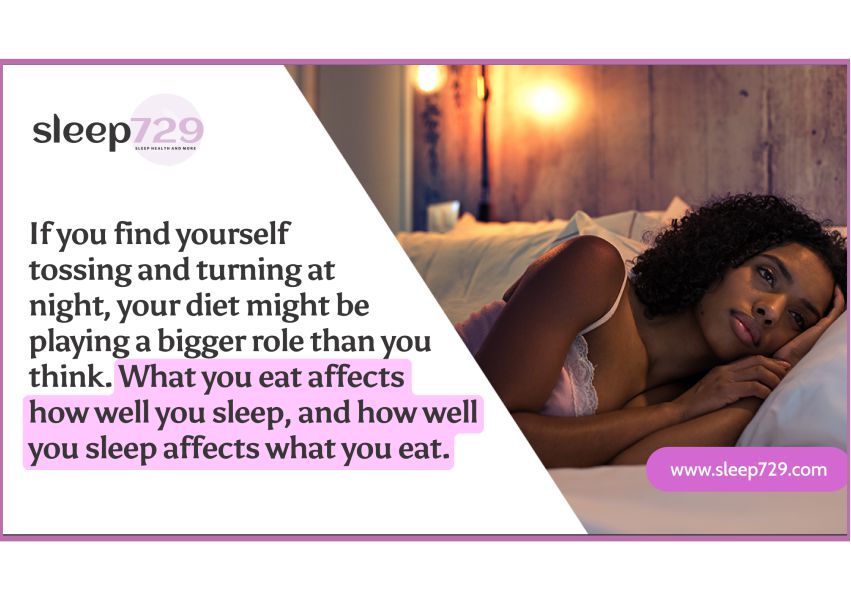
“You are what you eat” may be a cliché, but it reflects the fact that nutrition serves as a backbone for health, providing the energy we need and other inputs that make the body function properly.
The links between nutrition and obesity, diabetes, and heart health are well-known, but many people are unaware that their diet can also affect sleep.
Poor nutritional and lifestyle choices can lead to obesity, which can lead to OSA (Obstructive Sleep Apnea) and, consequently, poor sleep quality.
Consistent consumption of saturated fats and high-glycemic-index carbohydrates, in addition to a lack of exercise, can lead to this problem.
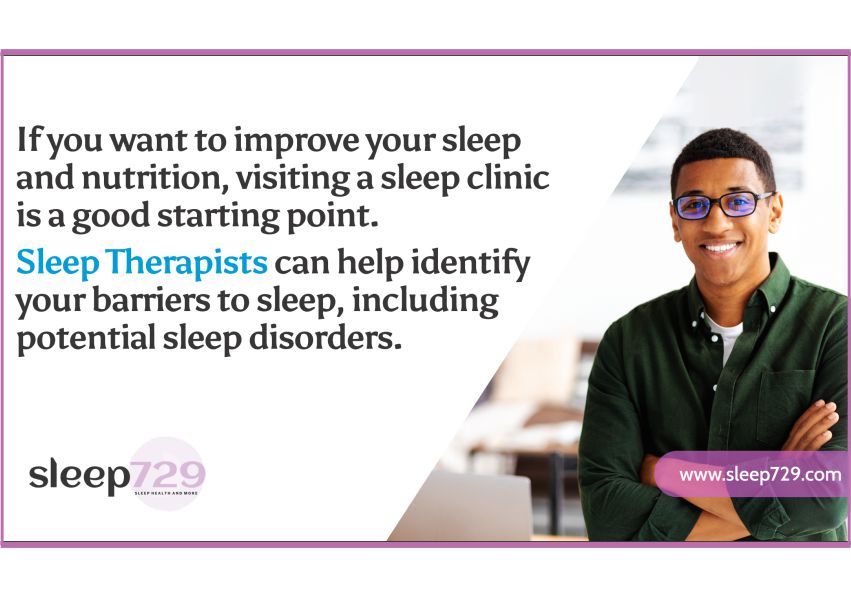
1) Energy and Food:
Your body needs sleep to regulate your appetite and metabolism. When you don't get enough sleep, you might crave unhealthy, high-calorie foods. By prioritizing good sleep, you can help control your cravings and make healthier food choices.
2) Food Choices:
The foods you eat can also impact your sleep. Eating too much sugar and fat can disrupt your sleep, making it harder to fall asleep and stay asleep. Choosing a balanced diet with lots of fruits, vegetables, whole grains, and lean proteins can promote better sleep.
3) Nutrients and Sleep:
Sleep is important for your body to absorb nutrients properly. During sleep, your body repairs tissues, which require vitamins and minerals. Without enough sleep, your body may struggle to absorb these nutrients, leading to deficiencies.
4) Mood and Stress:
Both sleep and diet affect your mood and stress levels. Poor sleep can make you feel more stressed and irritable, leading to unhealthy food choices. Eating a balanced diet can help regulate your mood and reduce stress.
5) Lifestyle Choices:
Improving your sleep and diet often goes hand in hand with other healthy choices. Regular exercise, for example, can improve your sleep and diet. By focusing on improving one aspect, you can start a positive cycle that improves your overall well-being.
If you're struggling with sleep, there's hope.
Sleep 729 can help you understand the connection between your diet and sleep and provide personalized guidance to improve both.
Don't let poor sleep affect your health any longer.
Take action today for a better tomorrow.
If you want to improve your sleep and nutrition, visiting a sleep clinic is a good starting point. Sleep Therapists can help identify your barriers to sleep, including potential sleep disorders, and recommend a nutrition plan that best suits your needs.
Most people can get better sleep by improving their sleep hygiene, which includes an individual’s bedroom environment and sleep-related habits.
Keeping a regular sleep schedule is a major component of sleep hygiene, and many people find that it can keep them from pushing their bedtime later and later.
Research has found that a late sleep schedule is correlated with a higher risk of weight gain.
Sleep 729 stands out because we offer tailored treatments designed specifically for you.
For instance, we may recommend cognitive behavioural therapy for insomnia (CBT-I), which has proven highly effective for long-lasting insomnia. CBT-I helps identify the root causes of your sleep troubles and teaches you techniques to improve your sleep habits.
Additionally, depending on the severity of your symptoms, we may prescribe medications or suggest supplements to enhance your sleep quality.
What sets us apart is our commitment to your well-being. Our team regularly checks in with you to monitor your progress and adjust your treatment plan as needed.
We provide ongoing support and offer valuable tips to help you achieve better sleep. This personalized approach can significantly improve your sleep quality and overall health.
If you're struggling with sleep, consider visiting our clinic for expert help.
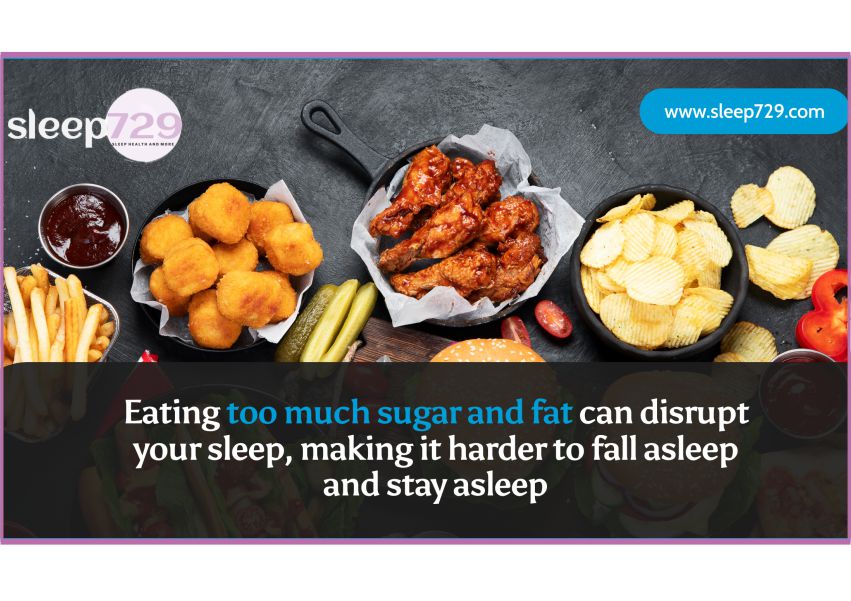
Eating well is not just good for your body, but it can also improve your sleep.
A diet with lots of fruits, vegetables, whole grains, and lean proteins can help prevent problems like obesity that can make it hard to sleep. By eating right, you can set yourself up for better sleep and a healthier life.
If you're having trouble sleeping, it's a good idea to get help from professionals. Sleep 729 Clinic in Abuja has experts trained in the UK who can assess and treat sleep problems like insomnia.
Don't let sleep troubles get you down — visit our clinic to get the help you need for better sleep and a healthier you.
